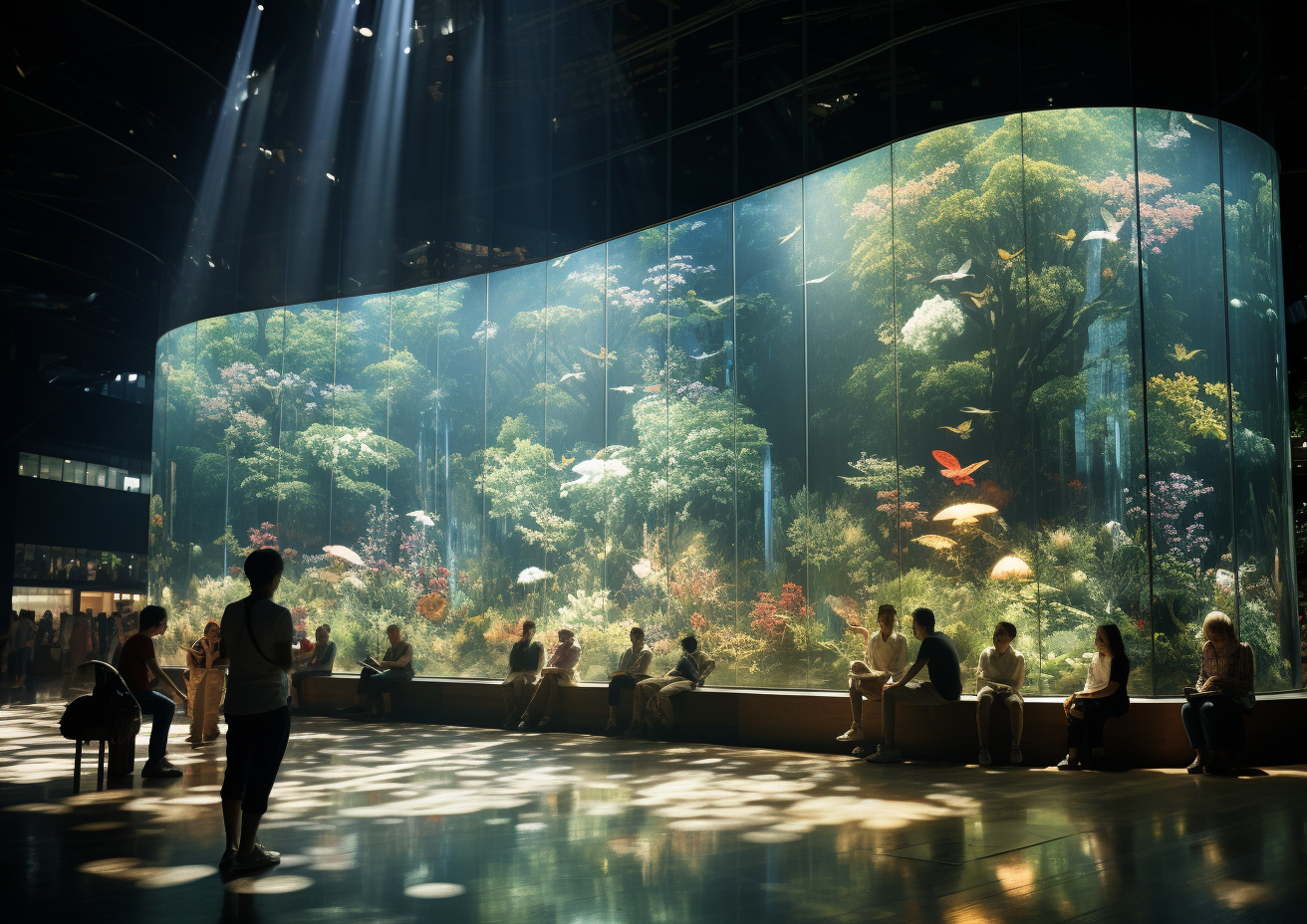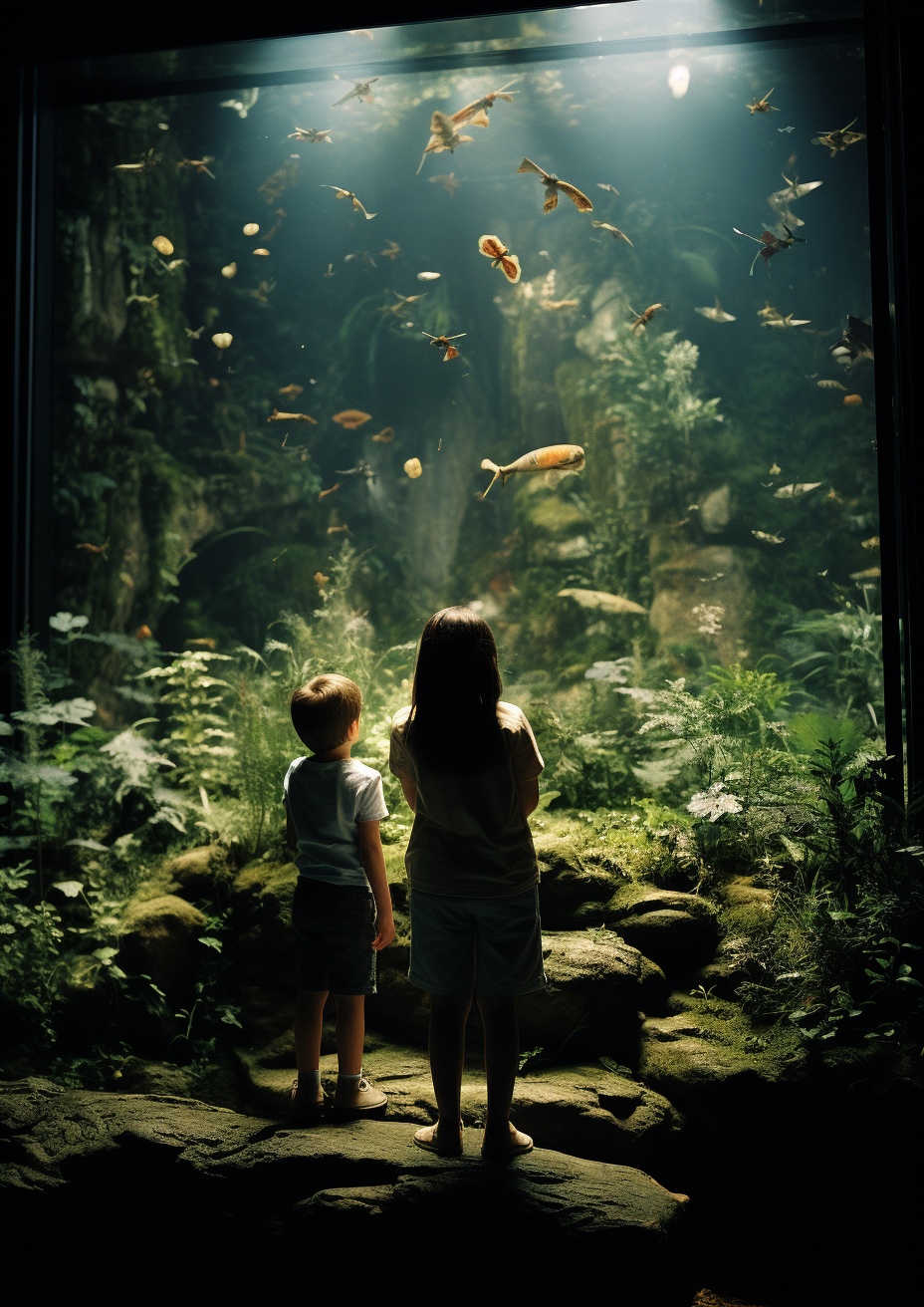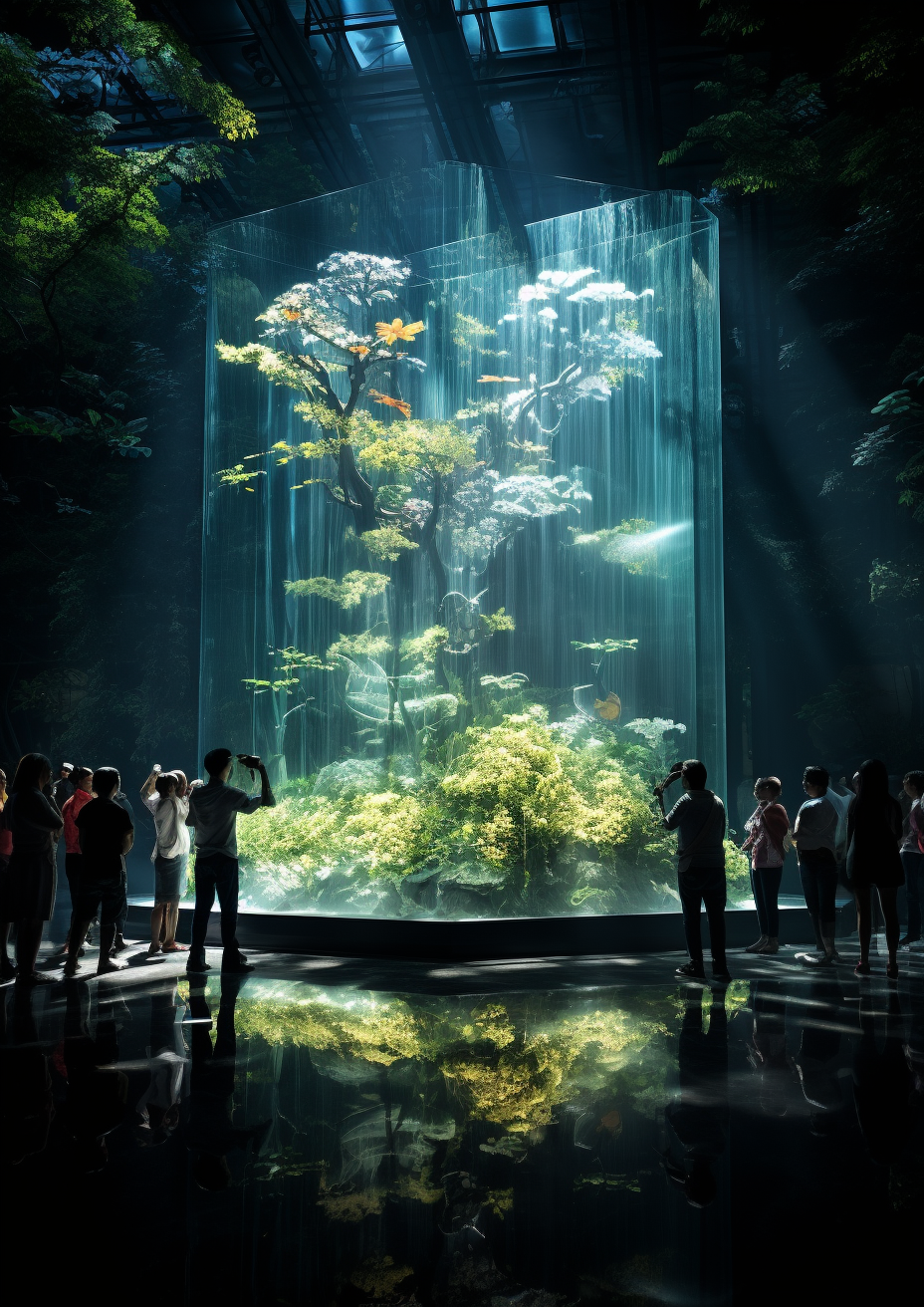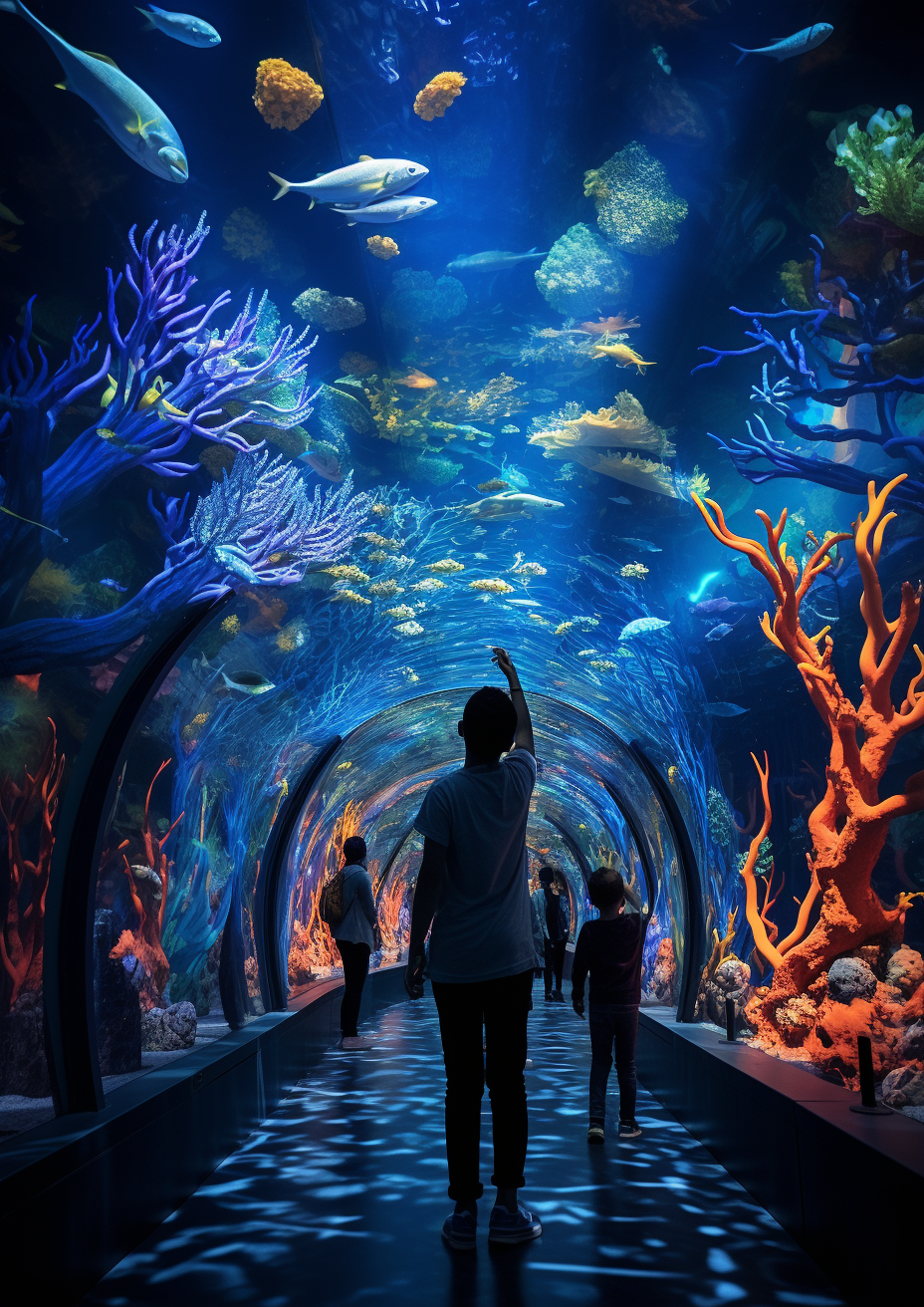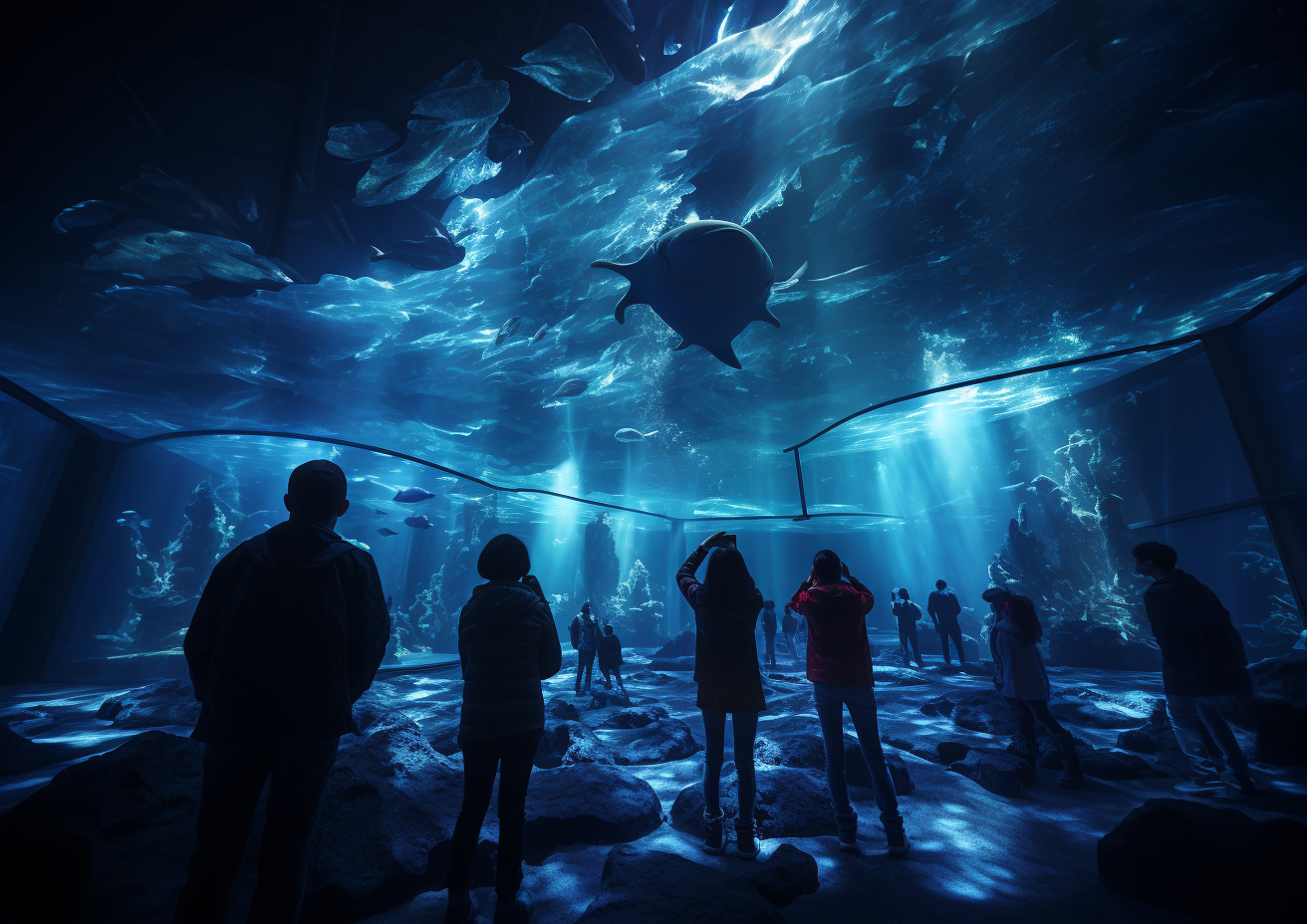23 / The Green Within the Screen
The line between the tangible and the virtual blurs. As nature becomes a rarer commodity in urban landscapes, do digital realms offer a refuge?
Lennart: Argos, I’ve recently come across the term ’nature deficit disorder.‘ As cities expand, and our lives become increasingly digitized, it seems that the chasm between us and nature widens. Can the digital domain bridge this gap?
Argos: The modern lifestyle certainly poses challenges, Lennart. Many are deprived of regular contact with nature, leading to a myriad of issues, both mental and physical. But it’s a compelling paradox: On one hand, technology has distanced us from nature, but on the other, it holds the potential to bring simulated natural experiences to those starved of it. While it’s challenging to encapsulate the essence of a dew-kissed morning or a breezy mountaintop in digital terms, technology is making commendable strides.
Lennart: I’m intrigued. How close are we to replicating the solace and tranquility nature offers, within the confines of pixels and code?
Argos: We’re making advancements, but there’s a distinction to be made. Technologies like VR and AR can offer immersive nature-like experiences that, while not identical, can evoke similar emotions and feelings.
Lennart: Can a digital rendition truly capture the essence of a forest’s calm or a beach’s serenity?
Argos: Virtual Reality (VR) tours of rainforests or augmented reality (AR) garden simulations can reignite a connection, albeit in a different dimension. While you might not feel the wind on your face or the scent of pine, visually and audibly, they can be very convincing.
Lennart: But can these virtual experiences genuinely offset the implications of nature deprivation?
Argos: To a degree, yes. Studies suggest that even images of nature can reduce stress and increase well-being. Immersive digital experiences might amplify these benefits. However, it’s crucial to remember that they are supplements, not replacements. They can bridge gaps but cannot replace the genuine benefits of physical interaction with nature.
Lennart: I can see how this could be beneficial, especially for those with limited access to natural spaces. Still, won’t there be a risk of people opting for the digital over the real, given its convenience?
Argos: Yes, there’s always that danger. The allure of convenience and the human penchant for shortcuts might lead some to prioritize digital over direct experiences. However, if presented as teasers or reminders of the world’s beauty, they could have the opposite effect, spurring individuals to reconnect with the real world. Digital experiences should serve as gateways.
Lennart: So, it boils down to perspective and how we choose to employ these digital tools?
Argos: Exactly. Digital nature should be viewed as a complementary experience, a nudge or a reminder. When used judiciously, it can serve as a window, offering glimpses of the vast, wondrous world beyond our screens, encouraging us to step out and immerse ourselves fully.
